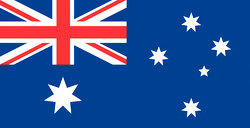
American researchers suggest that electro-acupuncture may be more effective and have fewer adverse effects, than the drug gabapentin in managing hot flushes in women undergoing treatment for breast cancer.
A total of 120 women who were having hot flushes at least twice per day, were randomly assigned to one of four groups for 8 weeks of treatment: electro-acupuncture; gabapentin daily; sham acupuncture as a placebo; placebo pills. By the eighth week, the mean reductions in hot flush scores were -7.4, -5.2, -5.9 and -3.4 for the groups respectively, making electro-acupuncture significantly superior. Additionally though, the two pill groups reported significantly more adverse events than the two acupuncture groups. At follow-up after 24 weeks, the symptom reduction was still greatest in the electro-acupuncture group.
(Electroacupuncture Versus Gabapentin for Hot Flashes Among Breast Cancer Survivors: A Randomized Placebo-Controlled Trial. Journal of Clinical Oncology, online 24 August 2015.)


